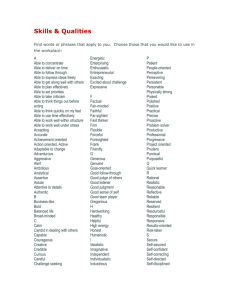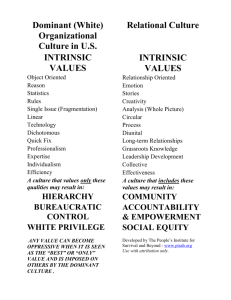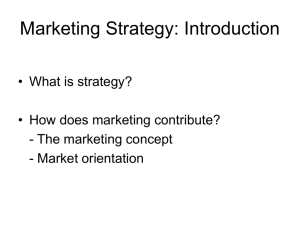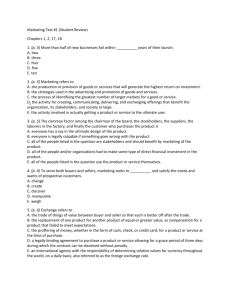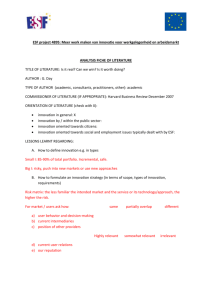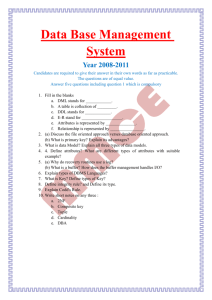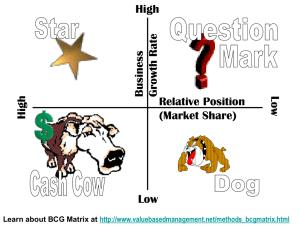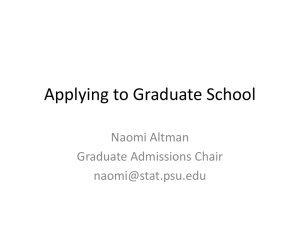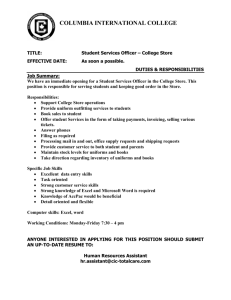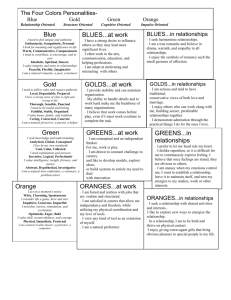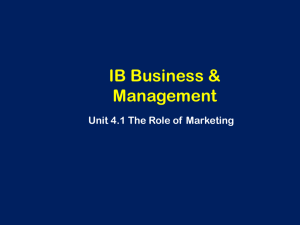infqual_actionrsrch
advertisement
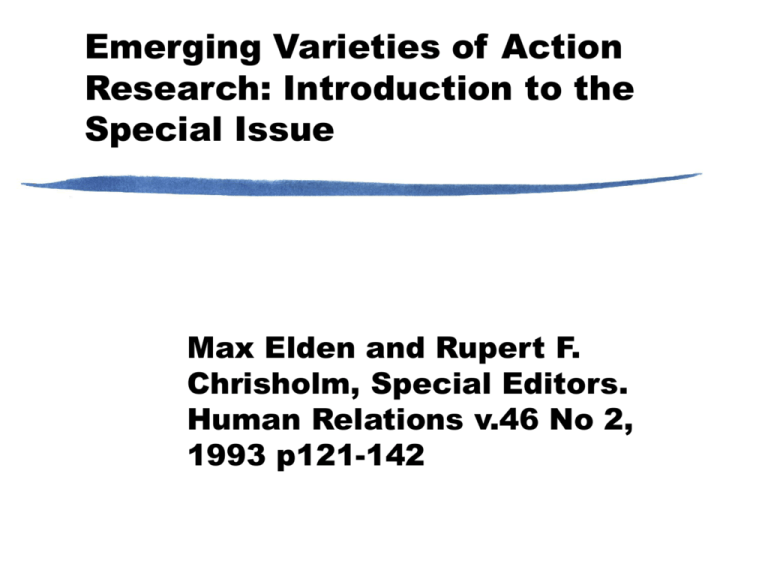
Emerging Varieties of Action Research: Introduction to the Special Issue Max Elden and Rupert F. Chrisholm, Special Editors. Human Relations v.46 No 2, 1993 p121-142 Action Research principles Action research is a cyclic inquiry process: “diagnosing a problem situation, planning action steps, implementing and evaluating outcome. Evaluation lead to diagnosing the situation anew based on learning from previous activities cycle” Researchers and practitioners: “Carried out in collaboration with” Rethinking relationship between science, knowledge, learning and action: Action research uses scientific approach to study social and organisational problems together with the people who experience them. Action Research principles Analysis of 11 action researchers [Peters and Robinson (1984)] (a) problem focus, (b) action orientation, © cyclical process, and (d) collaboration/participation Essential characteristics of AR process: [Susman & Evered (1978)] future oriented, collaborative, contributing to system, development, diagnosis, and situational Four “key emergent processes” [Shani & Bushe (1987)] (1) the emerging socio-task system, (2) the co-inquiry process, (3) the integration process, and (4) the experimentation process Action Research characteristics Five minimum characteristics of AR emerge from the literature review and discussions Purposes and value choice (value laden) Contextual focus Change based data and sense making Participation in the research process Knowledge diffusion Purposes and Value Choice Purposes scientific enquiry, practical problem solving, enhance capacity of system being studied Value Choice rejects the idea that science is “value free” take social construction of reality seriously “Could be” vs. “What is” - emphasis possibility rather than prediction change oriented “Action researcher has some vision on how society or organisations could be improved and uses the research process to help bring this desired future state into existence.” Contextual Focus Context bound inquiry - solving real world practical problems Action research: interdisciplinary and theory/practice oriented - problem defined by system members who experience them Contextual focus is on the content of the problem and its solution can be single unit, system, group, organisation, community can be relatively short time Change Based Data and Sense Making AR change oriented require data that help track the consequence of intended change data collected systematically over time “like a field study” formulate hypothesis, carry out experiment/study, interpret data, relating to new theory, report result acts as conventional scientists Participation in Research Process Impossible without some form of participation Collaboration support and encourage the cyclic and emergent nature of the AR process Those who “own” the problem must be involved with selecting problem and searching for solution Knowledge Diffusion essential to the scientific enterprise “a good solution to a chosen problem will spread by force of the value it adds to our general store of knowledge” in addition to reporting on the specific case it is important to report the “general knowledge” derived from the case
